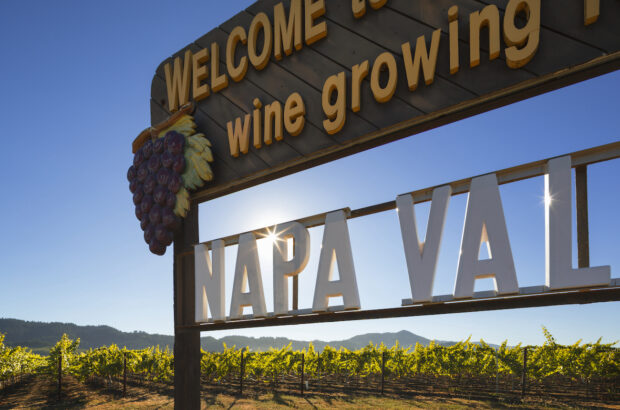Higher growing season temperatures over the next 20 years are likely to further increase the UK’s potential for wine production, according to new modelling on ‘near-term’ climate change impact on the sector.
Yet wineries also need flexibility to adapt to challenges, said the study, published in the Oeno One journal and part of a wider project on climate resilience in UK wine.
Conditions seen in the excellent 2018 vintage are set to become more common in several areas, including East Anglia, Lincolnshire, south-central England, north-east Wales and coastal areas in south-west England and southern Wales, said the study.
Both sparkling styles and emerging still wines should benefit, said researchers, who put a special focus on Pinot Noir.
‘We found that significant areas within England and Wales are projected to become warmer by 2040 by up to a further 1.4°C during the growing season,’ said Dr Alistair Nesbitt, of vineyard and winery consultancy Vinescapes Ltd.
‘This expands the area of suitability for Pinot Noir for sparkling wine production, but also new areas will open up within the growing season temperature suitability range for still Pinot Noir production and for growing varieties such as Sauvignon Blanc, Riesling, Semillon and more disease-resistant varieties, which are hardly grown in the UK at present.’
Other researchers included those from the University of East Anglia and the London School of Economics’ Grantham Research Institute, as well as forecasting group Weatherquest Ltd.
The study included analysis of climate data, such as growing season temperatures, from 1999 to 2018 in Pinot Noir-producing areas of Champagne, plus Burgundy’s Côte de Nuits and Germany’s Baden region.
Modelling showed similar climatic conditions were likely to occur in parts of England and southern Wales between 2021 and 2040.
‘In certain years, a few areas of the UK may see growing season climates similar to those that contributed to the very best recent vintages of Champagne, as well as support increased potential for Burgundy and Baden-style still red wines,’ said Nesbitt.
He told Decanter, ‘What we’re projecting to see over the next 20 years is that the growing season temperatures, in particular, as they increase [it] means that more area of land and new areas open up to become suitable for growing grapes for wine production.’
He said the work follows on from previous research to map sites for grape-growing in the UK.
With the new findings, ‘we can advise clients not just on where’s good now, but actually what is going to be suitable within the next 20 years looking at these projections’, Nesbitt said.
As widely reported, however, there are myriad challenges for agriculture associated with climate change, from more extreme weather events to impacts on ecosystems.
Researchers said they expected variable UK weather to continue affecting vintage conditions. If higher temperatures lead to an earlier growing season, vineyards could also be more vulnerable to spring frosts, they said. This was recently highlighted as an issue in French vineyards.
While the study focuses on UK viticulture, Nesbitt said it was important to ‘consider what more could be done to alleviate and help older, established [wine] producing areas’ in other parts of the world deal with the severe stress and socioeconomic impact of climate change.
The Oeno One study’s authors also said the UK should remain ‘climate-agile’, and noted how ‘more established wine-producing regions are looking at ways to increase flexibility in terms of production processes and variety permissions’.
Professor Stephen Dorling, of Weatherquest Ltd and the School of Environmental Sciences at the University of East Anglia, said, ‘There are exciting times ahead for the UK wine sector, but our results have emphasised the challenge of establishing wine identities and brands, in particular those tightly associated with varieties and wine styles, in a rapidly changing climate.’
The work is part of a project on Climate Resilience in the UK Wine Sector (CREWS-UK), funded by the Natural Environment Research Council as part of the UK Climate Resilience Programme.







